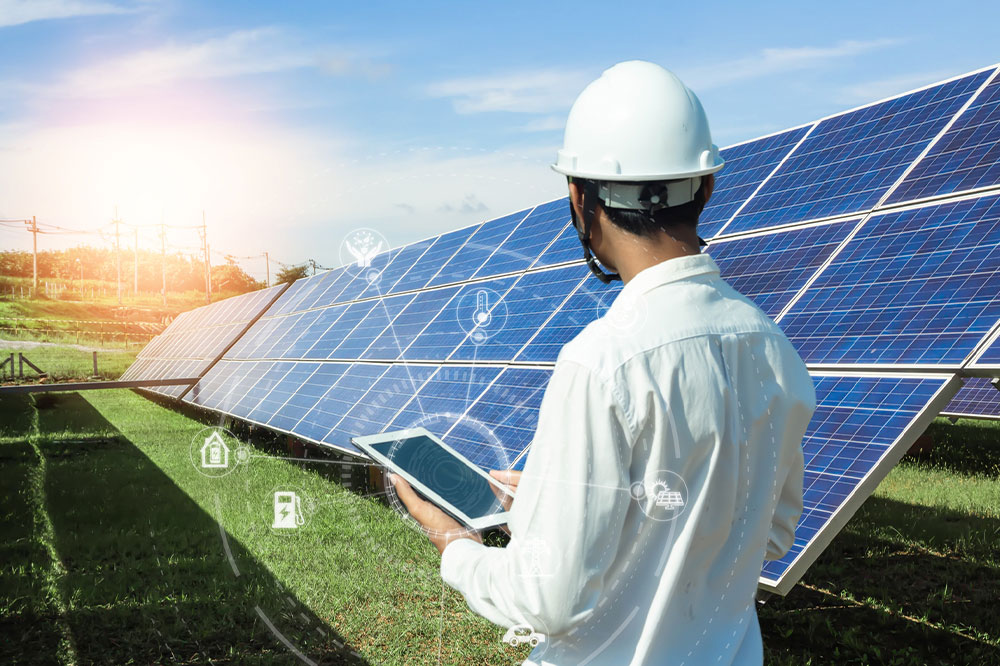Things to Know Before Setting up a Functional Solar Farm
A solar farm (also known as a solar park or solar power station) is a large collection of photovoltaic solar panels. These panels absorb energy from the sun and convert it into electricity that connects to the power grid and is meant to power homes, businesses, factories, and more. Depending on their output, solar farms may be utility-scale (up to 2,000 megawatts of energy) or community-scale (up to 5,000 megawatts of energy).

How to start a solar farm?
Starting a solar farm requires a little more preparation than setting up a solar project at home. Here are some steps that can help you during this journey:
- Do your research
Just as you would before starting any other business, it is important to figure out who will benefit from your project, that is, your target market. This could be a rural or urban community, a university, or any other area. Along with this, research the electric company you want to work with and your competitors. - Create a business plan
Once you are through with your research, create a business plan. This will help you visualize your targets and set up a better structure to help achieve them. - Create a legal business and brand
Next, you must register your business as a limited liability company, a partnership, or a corporation. Once registered, establish your brand with an online presence, such as your website and social media profiles. - Find a suitable location
With your business ready to soar, you need to find a suitable location for your solar farms. When looking for a location, it is important to consider zoning ordinances, sun exposure, land use, and other factors that can impact your business’s success. - Apply for permits
To operate your solar farm business legally, you might need certain licenses and permits. These could differ by area, so be sure to do your research ahead of time and apply for them. - Purchase liability and other insurance
Having proper insurance policies can help protect you from any future legal trouble. Be sure to get liability coverage and policies to cover the damage or loss of solar equipment. - Hire professional solar installers
Once you have your documentation in order, it is time to contact a professional agency to install your solar panels. Look for the best-rated companies for the task of achieving the best results. - Establish a maintenance schedule
Your panels need to survive the test of time and weather, so it is important to have a fixed maintenance schedule. For the best advice, follow the manufacturer’s recommendations.
Why should I invest in a solar farm?
Solar farms are the most direct means to reduce carbon emissions, to help reduce global warming. They provide renewable energy and do not threaten the environment with spills (as with oils and other non-renewable sources). Solar farms make for a great business idea for several economic and environmental reasons. Here are some of them:
- Solar farms can help generate more income for people who own land than farming initiatives.
- Solar farms have a high return on investment when electricity bills, maintenance costs, and reliability factors are considered. You can also find several financing investments to save more money.
- Solar panels also have motorized paths that follow the sun’s path, which helps maximize their efficiency.
- Investing in solar farms can help you diversify your personal and professional portfolio and generate an additional source of income.
- Solar farms in areas with plenty of sunshine can generate income and electricity all year round.
- The solar industry is growing and gathering significant interest from investors as more companies are looking to make their initiatives sustainable.
How much do solar farms cost?
The average solar farm cost is between $0.89 and $1.01 per watt. According to this price, a 1 mW (megawatt) solar farm can cost anywhere between $890,000 and $1.01 million.
Similarly, each acre of solar farm costs between $400,000 and $500,000. This includes utility and equipment costs such as inverters, transformers, batteries, permissions, structural systems, wiring, and overheads. Variable costs, such as skilled labor and supply chain costs, may differ based on your location. In addition to this, you may also need to add 20% as sales tax. For commercial purposes, developers advise investing in at least a 5-acre plant. If you want to opt for a smaller plant to cover your electricity needs, and those of some of your neighbors, a 2-acre solar farm is ideal.
With a quick online search, you can find solar farms for sale. Many of these already have government clearances, while others sell open lots for construction based on your needs.
If you are keen on powering your home via electricity generated at a solar farm, you can also look for “solar farms near me.” Itemize your results, and speak to the owners or managers regarding energy costs, efficiency, sustainability, and savings for drawing a line to your home!

